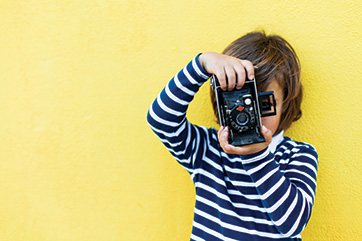‘Many women mistakenly believe that protecting children means taking the knocks in an abusive relationship. If that sounds familiar, it might be time to change the picture,’ says family therapist Jan Cooper
Being in a relationship that’s not safe is a daunting and frightening experience for anyone. Many women are reluctant to acknowledge that they feel unsafe or fearful of their partners. They believe their partner’s abusive behaviour is somehow their fault – they make excuses, accept blame, try harder, not wanting their children or families to know about the abuse, hoping it will get better.
There’s a common misconception by many women who think that protecting children means taking the blows in an abusive relationship and keeping quiet about it. Sadly, however, that’s far from the truth. Children are astute parent-watchers and listeners and often know what is going on between their parents.
Children can also take on the task of “keeping the secret”. In some families this is a closed secret that’s known within the family but where it’s understood that no one should talk about it outside the family. Or it may be an open secret in that family members talk about it with friends, neighbours or grandparents but wouldn’t talk to a social worker, teacher, or seek help from outside. It’s a tricky balancing act which doesn’t lead to a solution; instead it keeps things very much the same.
So if a child knew that their mother was being abused or was even witnessing the abuse, what effect would it have on them? Research suggests that children may be distracted by worries about their mother’s safety and as a result find it hard to concentrate at school, or they may feel confused about how to manage their own temper and how to resolve arguments and disagreements with family and friends. Sometimes children just need straightforward advice and reassurance to know that aggressive behaviour is not okay. In my experience, children often do not know whether to take sides or not, and can feel pulled and pushed between both their parents or their parent and their partner.
As children grow and mature, they need to build up affectionate, trusting relationships with the adults in their family, to feel they are safe and that the adults are there for them to give advice and make suggestions when they feel stuck. This is what protecting children looks like.
The truth of the matter is that it is not the children who should be worrying about family safety. Responsibility for the parents’ behaviour and for making sure the family is safe lies firmly with the parents.
For many women it’s a poignant moment when they acknowledge that their children do know what is going on. This realisation can also bring relief and be helpful in thinking about and planning what to do next.
It may be that you want to leave an abusive relationship or you may want the violence to stop and work towards an improved and safe relationship with your partner. Either way, if you want to seek help or advice, North Devon Against Domestic Abuse (NDADA) is there to help and support. Women experiencing this issue often feel they are the only ones in this situation, but 40 years of helping women, men and children in abusive relationships shows this to not be the case – there are a lot of women out there who know just how much courage it takes to change.
Jan Cooper is a family therapist, co-founder of Reading Safer Families, and author of Domestic Violence and Family Safety (Jan Cooper & Arlene Vetere, Whurr Publishing, 2005). You can read why she holds hands with NDADA here.

